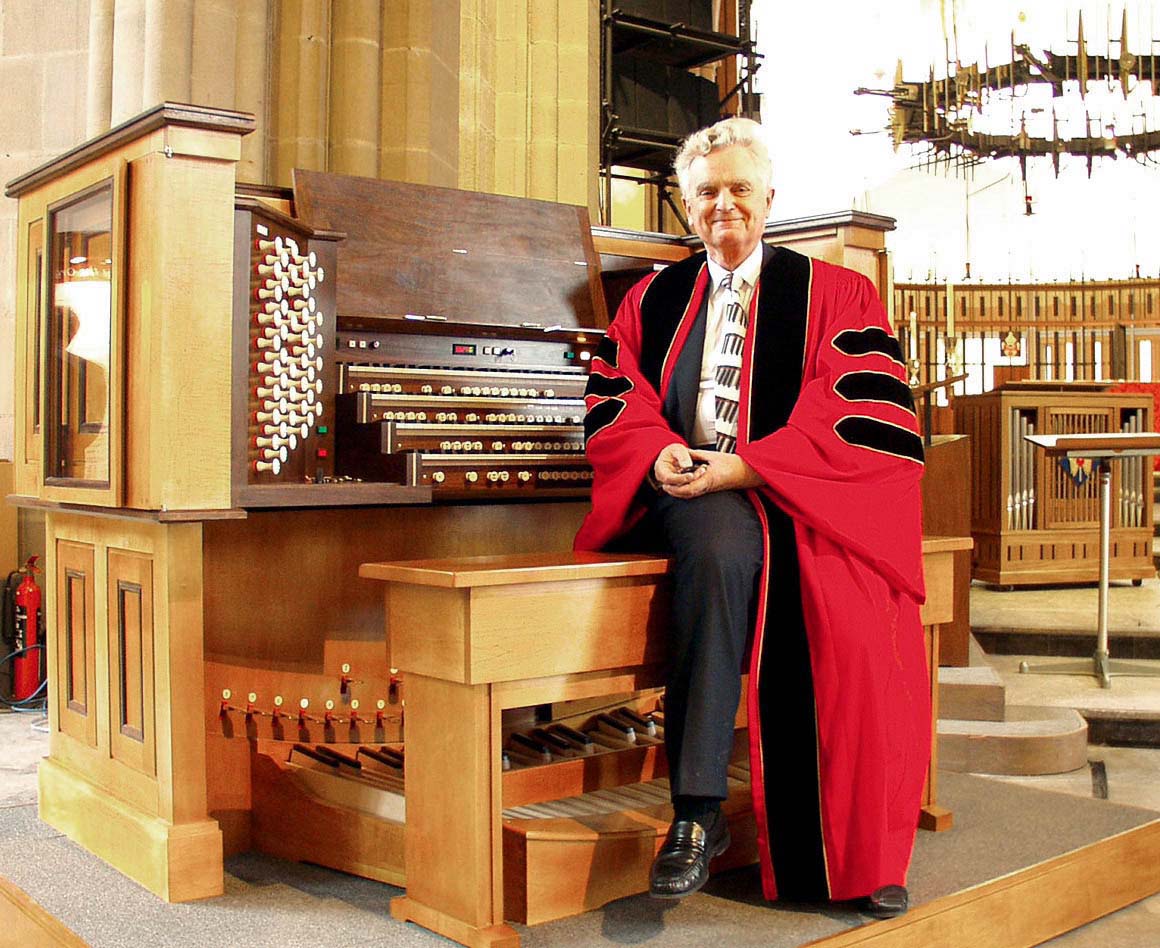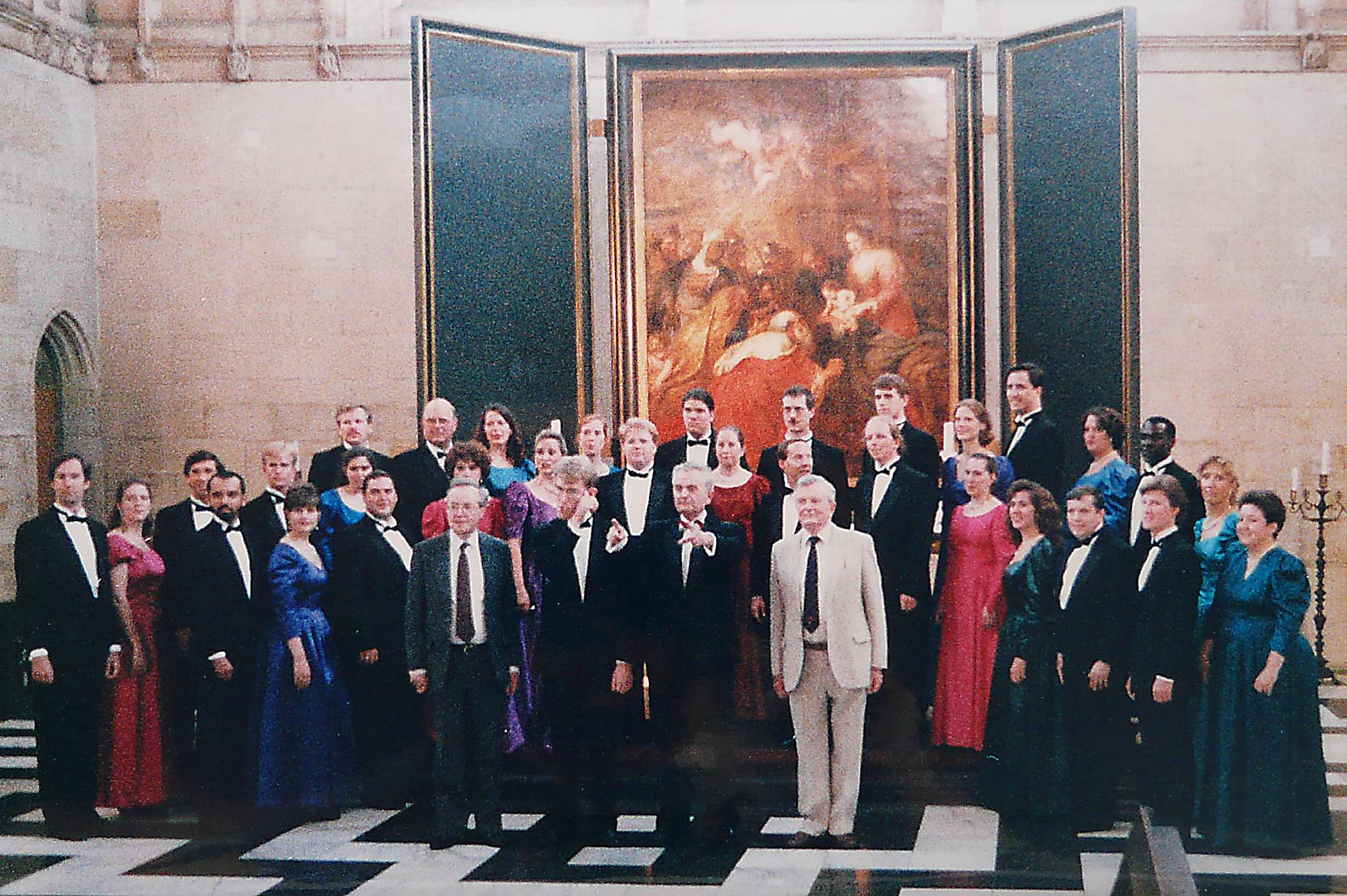How to transform your choir
and fill your stalls with enthusiastic singers
1. EASY BEGINNINGS

Dr John Bertalot
Organist Emeritus, St. Matthew's Church, Northampton
Cathedral Organist Emeritus, Blackburn Cathedral,
Director of Music Emeritus, Trinity Episcopal Church, Princeton NJ, USA
Does your choir chatter?
Does your choir listen attentively to every word you say to them? 75% of choir directors have to repeat instructions because their singers aren't listening! Do you feel that everything you tell them is of the greatest importance – to them as well as to you? If not, then don’t say it! That’s why they tend to talk when you’re talking; that’s why you have to repeat instructions more than several times. Or am I wrong?
Are you excited at the prospect of leading your next rehearsal – or do you regard it as yet another 90 minutes to be endured, with singers arriving late, (50% of choir directors have problems with late arrivals!) – singers not listening to your instructions, and a number of singers not turning up at all. Whatever you feel about your singers, they will also feel about you. If you expect them to sing badly they will, because they can sense that you expect them to sing badly.

Enthusiasm!
If, on the other hand, you do your homework, knowing what you will rehearse and how you will rehearse it, and if you consciously approach your singers with a sense of excitement at the prospect of achieving all the things you have planned for them that evening, your singers will begin to respond to you with equal excitement and dedication. There’s nothing so infectious as informed enthusiasm. Try it!
Shortly after I had returned to live the UK after 16 most happy and fruitful years making music in the American university town of Princeton, NJ., and having been organist of Blackburn Cathedral for 18 years before that, I was invited to take over the choir and organ of a village church near Burnley in Lancashire – half an hour’s drive from my new home in Blackburn. They were without a vicar, the organ was falling to bits and the 12 adults in the choir hadn’t rehearsed for a year. It was quite a challenge.
But now we have brand new organ, a super new vicar, and the choir stalls are full to busting with enthusiastic adults who listen to every word I say. They come up to 15 minutes early for our weekly rehearsals to enjoy a constructive time of fellowship before we begin rehearsing exactly on time. Some even cut short their holidays so as not to miss singing with us!

How was all this achieved? Mainly through putting into practice some of the many things I have learned during 50 years as a choirmaster, and which I have written about in my four books on choirtraining (available online from Amazon). In these articles are hundreds of immediately practical ideas which you can try at your next rehearsal.
Here are the first four!
Four easy ways to achieve success
- Get your choir to tell you what it is that you want to tell them. For six months my village choir rehearsed only hymns – but they found it worthwhile for I had marked in my own hymn book where breaths should and should not be taken and then, instead of telling them these places, I asked them where they thought they should or should not breathe. It was they who ‘owned’ the right answer and so they were more inclined to remember to sing correctly on Sunday.
- Begin to teach them to read music. I began to teach them to read music. This attracted new members who told me ‘I want to learn how to read music’ – and now they’re getting quite proficient and can learn new music so much more quickly. (I’ll tell you more about this in future articles – although, of course, you could get a copy of my sight-reading book from the RSCM if you can’t wait that long!).
- It’s easy to get your choir to make a lovely sound. This is one of the simplest and quickest things you can do right away. Ask them to sing the first chord of a hymn to the vowel ‘Ee’. Make sure that their lips are pushed slightly forward and are rounded. Some singers sing ‘Ee’ with tight lips, like a forced smile. This will produce thin tone. So, practise singing ‘Ee’ yourself in front of a mirror – try it the wrong way, with tight lips, and then with rounded lips, pushed slightly forward. You’ll be able to hear the difference immediately.
And so, once you know how to do it yourself, you’ll be able to show your choir how to do it. (You do stand in front of them, don’t you, rather than hiding behind a piano, or worse still, having your back to them whilst you play the organ? Eye contact with our singers is one of the most important techniques that all too few choirmasters practise.) - And LISTEN! They are singing that first chord, but they’re still making a nasty noise, and that’s because they aren’t listening to one another. So, ask them to sing it again, unaccompanied of course, for 10 seconds and, whilst they are still singing, say, ‘Listen to each other. Can you hear the singer next to you, and the singer in front or behind you?’ They will immediately begin to sing more softly and less aggressively. They’re beginning to get the message that, in order to achieve blend and balance, they must begin to listen to each other. So ask them to sing that chord again and to put up their hands when they can also hear the singers around them. Thus they will tell you when they have achieved both blend and balance, and they’ll love you for it, and want to learn even more from you.
Next article: How to make your singers enthusiastic – all of them!
© John Bertalot, Blackburn 2013
The RSCM said, 'If we all acted on the advice in Bertalot's books, our choirs would be the best in the world.'
Dr Bertalot’s choirtraining books are available, cut price, from Amazon or online.























